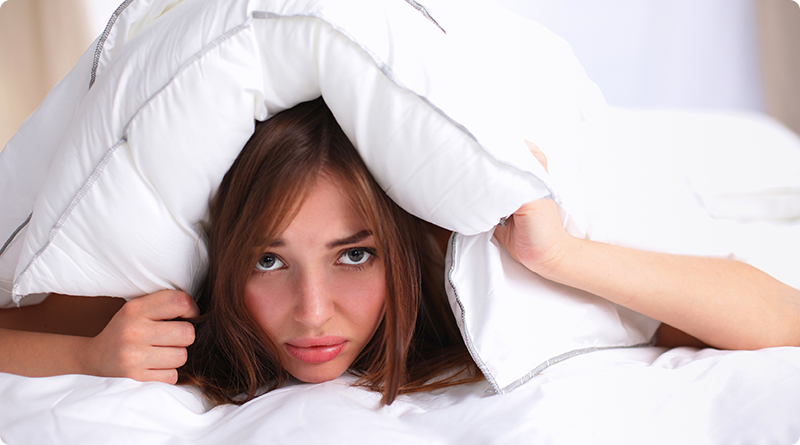How to sleep well?
This is a question which many of us ask. Sleeping problems affect 20% of the adult population in European countries. Here are a few tips and natural solutions which should help you sleep like a baby once more.
Difficulty falling asleep, insomnia, waking frequently in the night, restless sleep… Sleeping problems can take on various forms. They also affect a large part of the population since one in five people claim to suffer from these problems. However, this situation is not irreversible. Discover our advice to help you sleep well.

Different types of sleeping problems
In order to understand how to sleep well, you first need to find out how sleep works.
Three main phases of sleep can be identified:
- falling asleep;
- stabilisation;
- waking
Sleeping problems can therefore correspond to one or more of these stages. Some people find it hard to fall asleep. Others wake several times in the night, whereas others find it very hard to get out of bed. Whatever the situation, they all suffer from the same problem: they are lacking restful, restorative sleep; they wake up feeling tired, or feel drowsy during the day.
Did you know?
There is no set rule regarding the length of sleep: each person needs to sleep for a different length of time in order to feel well rested. A good night’s sleep ranges from 7 to 8.5 hours in most cases. It is up to you to find your ideal amount of sleep!
In many cases, stress and anxiety are the main causes of sleeping problems. We don’t often sleep as well when we are plagued by worries. We can handle this now and again, but when sleeping problems take hold in the longer term, the situation becomes unbearable. Insufficient rest causes fatigue, concentration difficulties, memory problems and irritability, etc.

Our tips for improving sleep
We thus need to find a solution. How can we sleep well?
A few simple techniques should help you relax before you go to bed, and promote deep sleep, all night long:
- exercise during the day, and not before going to bed;
- limit screen time before going to sleep;
- find your biological rhythm and try to keep to it as best you can;
- use good quality bedding;
- sleep in a cool, dark, well-ventilated room;
- pay attention to signs of sleepiness: when you feel tired in the evening, do not fight it;
- avoid stimulants, such as coffee, tea, fizzy drinks and alcohol at the end of the day.
How to sleep well: The plant-based solution
Individuals who wish to avoid sleeping tablets or benzodiazepines, often prescribed for insomnia and anxiety disorders, can turn to plant-based health.
Plants such as hops, eschscholzia, lemon balm and passion flower do not have any side effects and are non-addictive. Owing to their different properties, these four plants act on the three main phases of sleep to help you rediscover good quality sleep.
 Belgium
Belgium
 Belgique
Belgique  België
België  France
France  Italia
Italia  Portugal
Portugal  España
España  United Kingdom
United Kingdom  Κύπρος
Κύπρος 





